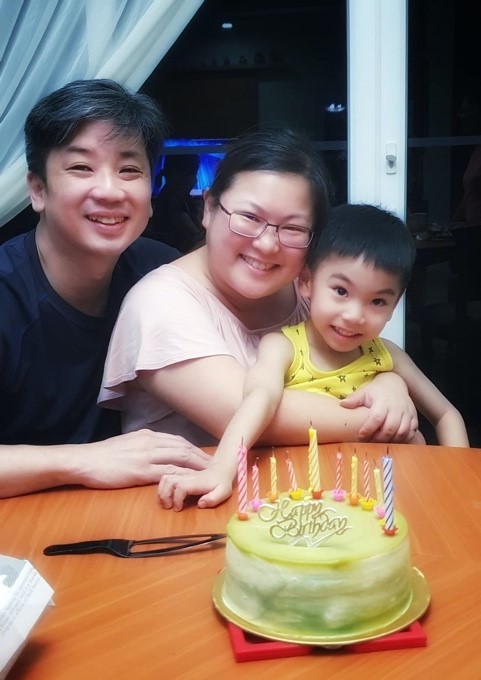While other students typically take a gap year to travel or work overseas, Mr Shaun Lim was forced to take one after his first year in university when he was diagnosed with cancer in July 2019.
Since then, he has undergone two major operations and several cycles of chemotherapy for sarcoma, a rare but aggressive tumour that occurs in bones or the soft tissues of the body.
He is still undergoing chemotherapy, but has been back in school since August 2020, and stayed in school despite a relapse.
The psychology student at the National University of Singapore, now in his third year of studies, is one of many cancer patients who are surviving the battle.
National Cancer Survivors Day, which falls on the first Sunday of June - June 6 this year - raises awareness about cancer survivors who continue to live life to the fullest.
The National Cancer Centre of Singapore marks the worldwide celebration with the event CanSurvive. The theme for CanSurvive this year is "Nothing is impossible; I'm possible".
Globally, cancer incidence has been increasing and is likely to continue to rise with an ageing population, says the National Cancer Centre Singapore (NCCS).
However, cancer survival rates have also been improving, thanks to earlier diagnoses through screening measures, and improvements to treatment and post-treatment care.
The Singapore Cancer Registry, in a report released in March this year, said that the survival rate of cancer has risen from 53.1 per cent in the period between 2008 and 2012 to 56.7 per cent between 2014 and 2018.
Support from family and loved ones is vital on a patient's road to recovery, said Dr Teh Yi Lin, NCCS director of cancer education and information services, and associate consultant, division of medical oncology.
But she also cautioned that sometimes false positivity may come across as discounting the patient's feelings.
She said: "Allow your loved one to express his or her feelings when they are comfortable to do so and reassure them that it is normal to feel down, worried or fatigued."
Dr Teh added that patients may also struggle with a sense of loss, including of their place in society. In such cases, family members and loved ones are encouraged to help the patients reintegrate into their usual routine, modifying it when necessary.
Ms Cheryl Wang, 39, who works in the health and safety sector, said she is grateful for the support from her family and colleagues during her treatment and recovery.

Ms Cheryl Wang said she is grateful for the support from her family and colleagues during her treatment and recovery. PHOTO: CHERYL WANG
A nodule was detected in her right lung after she signed up for a health screening in December 2018.
But she put off the doctor's recommendation to go for further checks until mid-2019 due to work commitments.
The tumour was then found to be cancerous. She had surgery at the National Heart Centre Singapore and was diagnosed with stage 2 lung cancer in July 2019.
The illness meant a host of side effects from chemotherapy and the risk of being unable to attend her cousin's wedding and go on family vacations, but Ms Wang said she has much to be thankful for.
Her husband took on most of the load at home during her recovery, and her then three-year-old son was understanding of her condition and mindful of her surgery wound despite his young age.
She added that her colleagues were quick to shield her from high-risk duties when the Covid-19 pandemic hit.
Ms Wang said: "In 2020, before the circuit breaker, my colleagues were activated to support the management of Covid-19 that carried risks of getting infected.
"My boss was aware that the risks of Covid-19 to me were higher than to my colleagues, so she decided to leave me out of those duties."
She currently undergoes a CT scan once a year, to ensure that her cancer does not reappear.
She said she is looking forward to many more celebrations - of Children's Day with her son, of her birthday and of Christmas.
Meanwhile, Mr Lim is still plagued by many bad side effects such as nausea, vomiting and hair loss from his cancer treatment.
But this has not stopped him from continuing with his studies and even making time to volunteer at NCCS' Adolescents and Young Adults Support Group, where he is helping to create new engagement and outreach plans for such patients.
"I'm up for more projects in the coming months as well, and I'm just excited to a part of something more than myself," he said.
